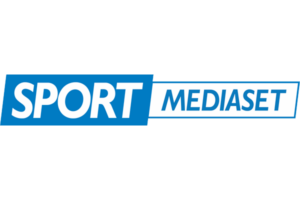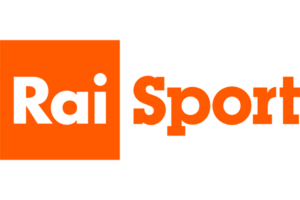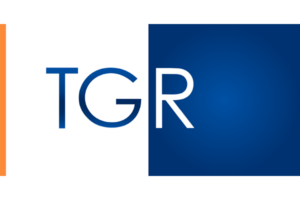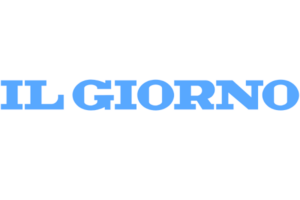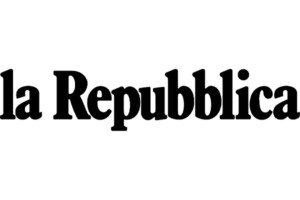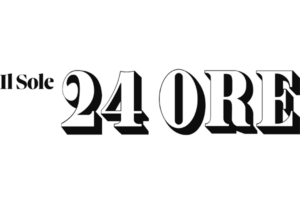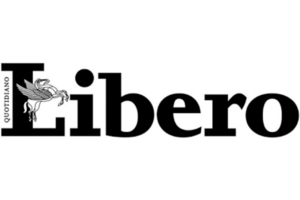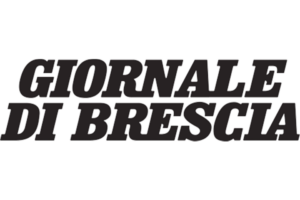CE Marking
CE (European Conformity) marking is mandatory for certain products, including structural steel components, to be marketed within the European Economic Area.
CE marking represents a harmonized methodology for evaluating, testing, calculating, expressing, guaranteeing and finally declaring the performance of a product.
The goal for the next two years is to distribute 65 percent of the realizations to the foreign market, while as early as 2022 the company will reach an annual production capacity of 1,500 fields.
CE marking assures the consumer that the product complies with all European Community provisions involving its use, from design, manufacture, placing on the market, and putting the product into service to disposal.
The goal for the next two years is to distribute 65 percent of the realizations to the foreign market, while as early as 2022 the company will reach an annual production capacity of 1,500 fields.
To affix the CE Marking to their products, manufacturers of structural steel components must obtain the EN 1090 Company Certification.
In cases where the manufacturer carries out welding, obtaining EN 1090 Company Certification is also tied to obtaining EN ISO 3834 Company Certification.
UNI EN 1090 and UNI EN ISO 3834 company certifications
The UNI EN 1090 Company Certification (execution of steel and aluminum structures) allows us to fulfill our obligation to affix the CE Marking to our steel structural components and thus to market them in Italy and Europe.
If we did not have the UNI EN 1090 Company Certification, we would not be able to market our products in the European Economic Area, even with customer complacency, as we would be violating a legal obligation.
To obtain the UNI EN 1090 Company Certification, we were required to implement a Manufacturing and Control Plan (PFC) that oversees all phases of our production processes, from order acquisition to product release through procurement and infrastructure management.
The goal for the next two years is to distribute 65 percent of the realizations to the foreign market, while as early as 2022 the company will reach an annual production capacity of 1,500 fields.
Since we perform welding to manufacture our products, obtaining UNI EN 1090 Company Certification has obliged us to obtain the UNI EN ISO 3834 certification (Quality Requirements for Fusion Welding of Metallic Materials) related to the quality requirements we must meet for the proper management of the manufacturing process by welding.
The UNI EN 1090 and UNI EN ISO 3834 Company Certifications must be issued by a third-party Certification Body, notified at the European Commission, which carries out the initial verifications and periodic audits that are necessary for maintaining the certifications.
The goal for the next two years is to distribute 65 percent of the realizations to the foreign market, while as early as 2022 the company will reach an annual production capacity of 1,500 fields.
These certificates, in addition to allowing us to market our products throughout Europe, are an important guarantee for the customer who knows that he is buying from a company capable of producing metal structures in accordance with the relevant standards and ensuring that the finished products conform to the stated performance.
Product certification TÜV SÜD
The rapid growth in recent years makes Padel a poorly regulated sector.
To date, there is no specific reference standard for testing the design and construction of padel courts.
Although there are currently no mandatory regulations to date to help define the correct parameters of civil and/or criminal liability, in the event of an accident, operators are required to provide proof that they have taken all preventive safety measures for users, service personnel and the facility in general.
In fact, operators have civil and criminal liability towards the safety of their facilities.
The Mechanical Safety Department of the Product Service Division of TÜV SÜD recently created a test protocol for verifying the safety of structures of facilities dedicated to Padel.
The goal for the next two years is to distribute 65 percent of the realizations to the foreign market, while as early as 2022 the company will reach an annual production capacity of 1,500 fields.
The test protocol was developed from an in-depth analysis of the risks to which players and people in the vicinity of the padel court are exposed.
The protocol mainly consists of empirical testing, document analysis for the classification of facilities, and periodic validation and monitoring of the production site.
Obtaining the Product Certificate and related TÜV SÜD Certification Mark is subject to successful completion of all items listed in the test protocol.
If successful, the manufacturer acquires the right to use the TÜV SÜD Certification Mark as a guarantee of safety and quality.
The goal for the next two years is to distribute 65 percent of the realizations to the foreign market, while as early as 2022 the company will reach an annual production capacity of 1,500 fields.
Complies with UNI 7697
UNI (Ente Nazionale Italiano di Unificazione) is a private, independent, nonprofit association, recognized by the Italian state and the European Union, which participates, representing Italy, in the standardization activities of the international bodies CEN (Comité Européen de Normalisation) and ISO (International Standards Organization) to develop standards at the European and world levels, respectively.
The UNI 7697 (safety in glass applications) standard illustrates for Italy the state of the art in safety regarding glass applications and provides references for the correct choice of glass products (type of glass and its performance) according to the boundary and conditions of use, to guarantee the safety of all users.
The standard was created to fill a regulatory gap present in Europe.
Other member states, many of which still do not have a text on the subject, also hold this standard in good regard.
CEN Technical Committee 250 (CEN/TC250) “Structural Eurocodes” is working to make it a European standard related to the Eurocodes.
The new version of the standard, developed in 2021 by UNI’s “Flat Glass” Working Group (UNI/CT 054/GL 01), introduced the requirement of laminated safety glass for playing fields (e.g., padel and squash), excluding the possibility of adopting only monolithic thermal tempered glass.
The choice is aimed at avoiding the risk of falling fragments on athletes and people in the vicinity of the court in case of breakage.
The goal for the next two years is to distribute 65 percent of the realizations to the foreign market, while as early as 2022 the company will reach an annual production capacity of 1,500 fields.
In Italy, there is a heated debate about the mandatory nature of the UNI 7697 standard.
By definition, pursuant to European Regulation no. 1025/2012, UNI standards are voluntary.
They represent the state of the art for the specific subject matter.
Therefore, when one decides to design/prescribe/manipulate products in a way that is different from what is stated in such texts, it is necessary to demonstrate, possibly also through evidence, that the proposed alternative solution is valid.
In the event of disputes and/or litigation, in the absence of binding documents, the “UNI” and “UNI EN” standards are taken as reference to determine responsibilities.
However, there are cases where standards become of mandatory application because they are included in legislative provisions, national or European, or are explicitly referred to in notices, contracts, etc.
Those who argue that compliance with UNI 7697 is mandatory say that this standard, which started as voluntary, would be made mandatory by Legislative Decree Sept. 6, 2005, no. 206 “Consumer Code,” pursuant to Article 7 of Law July 29, 2003, no. 229, which mentions it indirectly.
The goal for the next two years is to distribute 65 percent of the realizations to the foreign market, while as early as 2022 the company will reach an annual production capacity of 1,500 fields.
Those who argue otherwise say that the rule remains strictly voluntary in nature since there is no law explicitly refers to it.
It is our opinion that even when compliance with UNI 7697 is not mandatory, its application is a guideline for better construction safety.
Furthermore, in the event of an accident, the operator who is able to demonstrate that the glass walls on the court were made in compliance with the UNI 7697 standard will certainly be able to concretely demonstrate that he has created all the necessary conditions to guarantee the safety of players, spectators and service personnel.
For this reason, all our products are offered, in addition to the classic 12mm monolithic tempered glass (which is sufficient to meet the rules of the sport), also with laminated glass with interposed plastic film, in the thicknesses 6 + 6 mm, 8 + 6 mm and 8 + 8 mm, all in performance class 1B1 and therefore complying with the UNI 7697:2021 standard.
Eligible for approval by the International Padel Federation (FIP).
The International Padel Federation (FIP), which is the world governing body of the sport of Padel, publishes the “Regulations of the Padel Game,” which contain precise guidelines on the geometric characteristics and lighting levels required for a Padel court.
National Padel Federations must comply with the dictates of the FIP, but have the freedom to supplement them with further guidelines and prescriptions.
The goal for the next two years is to distribute 65 percent of the realizations to the foreign market, while as early as 2022 the company will reach an annual production capacity of 1,500 fields.
For the customer, the purchase of a court compliant with FIP standards is not a guarantee that the court meets high safety and quality standards, nor that it can obtain a building permit or approval from the national padel federation.
The goal for the next two years is to distribute 65 percent of the realizations to the foreign market, while as early as 2022 the company will reach an annual production capacity of 1,500 fields.
Eligible for approval by the Italian Tennis and Padel Federation (FITP).
The Italian Tennis and Padel Federation (FITP), which is the Italian governing body of the sport of Padel, publishes the handbook “The Facilities for Tennis, Beach Tennis and Padel,” which, while confirming the indications of the International Padel Federation (FIP), supplements them with some additional prescriptions.
The goal for the next two years is to distribute 65 percent of the realizations to the foreign market, while as early as 2022 the company will reach an annual production capacity of 1,500 fields.
For the customer, the purchase of a court compliant with the dictates of the FITP, while representing a guarantee that the court complies with the FIP and FITP standards, does not constitute a guarantee that the court meets high safety and quality standards, nor that it can obtain a building permit, for which it is necessary to refer to local building codes.
The goal for the next two years is to distribute 65 percent of the realizations to the foreign market, while as early as 2022 the company will reach an annual production capacity of 1,500 fields.
Eligible for approval by the French Tennis Federation (FFT).
The Fédération Française de Tennis (FFT), which is the French governing body of the sport of Padel, publishes the cahier des charges fédéral “La Construction d’une Piste de Padel” (federal specifications “the construction of a Padel court”) which, while confirming the International Padel Federation’s (FIP) guidelines, supplements them with valuable additional information and precise references to European regulations on the design, construction and safety of facilities.
The goal for the next two years is to distribute 65 percent of the realizations to the foreign market, while as early as 2022 the company will reach an annual production capacity of 1,500 fields.
For the customer, the purchase of a FFT-compliant court is not only a guarantee that the court is FIP- and FFT-approved, but also a guarantee that the court meets high standards of quality and safety, in compliance with the latest European standards.
The goal for the next two years is to distribute 65 percent of the realizations to the foreign market, while as early as 2022 the company will reach an annual production capacity of 1,500 fields.
The Italian Padel courts appeared on

